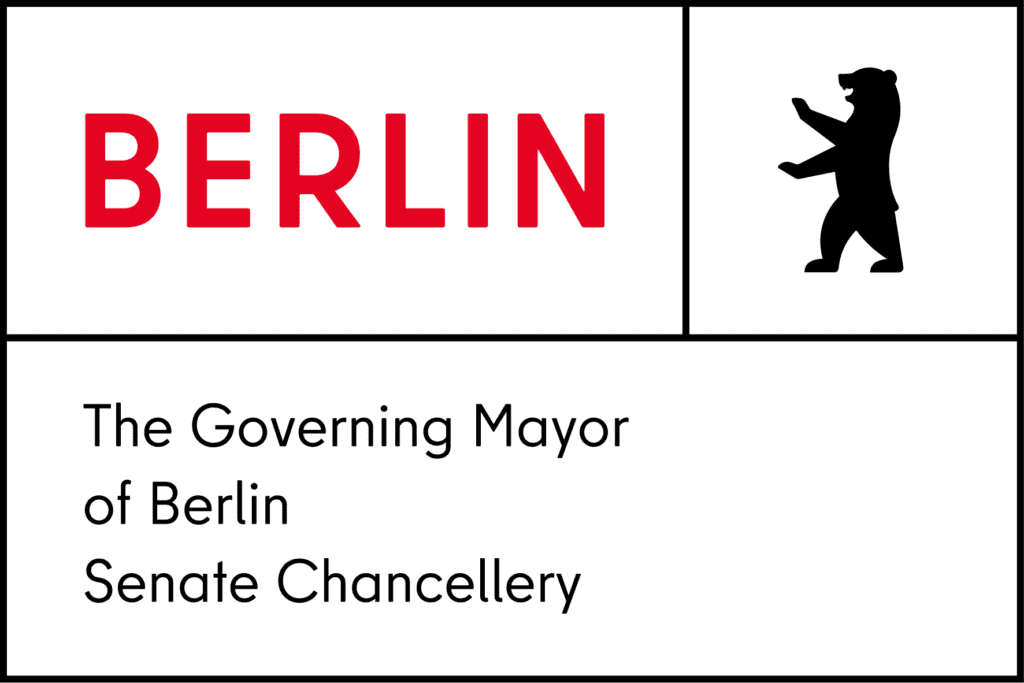
With our latest application Parla, we make public administration documents searchable with the help of artificial intelligence – and thus create a new and intuitive access to more than 11,000 documents (updated status April 2024) that reveal a lot about the inner workings of our city.
The public administration processes large amounts of information every day, but does not have a digital knowledge management system in many areas. Data and documents are not stored centrally and uniformly, but are scattered across thousands of different systems, databases, Excel files, logs and memos. Accordingly, employees of the Berlin authorities spend a lot of time compiling and processing information from various sources on a case-by-case basis.
With our new prototype Parla, we are testing the possibilities of using artificial intelligence to support this information retrieval process. Powerful language models, such as those we know from ChatGPT, are ultimately capable of searching through large, unstructured volumes of text in a matter of seconds, linking and summarising them in a meaningful way. The tedious manual search for a specific piece of information mentioned in one of the numerous meeting minutes can thus be eliminated in the future.
AI-generated answer suggestions for every search query
Parla has access to more than 11,000 publicly available documents (updated status April 2024) that have been published on the parliamentary documentation system PARDOK in the current legislative period. In the current version, the text corpus includes all answers to written questions from parliamentarians as well as the important main committee minutes (so-called “red numbers”). If you ask Parla a question, the system formulates a suggested answer based on this text and references the documents used for this, so that traceability is guaranteed.
Parla can therefore not only provide digital support for the daily work of parliament and administration. It is also often time-consuming for many other stakeholders, such as associations, chambers, the media and civil society organisations, to obtain an overview of current issues and decisions.
In our tests, Parla has proven to be helpful for a variety of use cases. Nevertheless, our system does not always work flawlessly. It is now well known that large language models sometimes misinterpret information and cannot reproduce it accurately. Our prototyping team has worked hard to minimise these so-called “hallucination” problems – but they cannot be completely ruled out with the current state of technology. It therefore makes sense to check the answers generated by Parla with the help of the referenced documents.
Parla: Experiment rather then a finished solution
In any case, we currently see Parla more as an experiment than a finished solution. After all, one of the added values of an agile prototyping approach is to visualise obstacles and hurdles on the way to a finished solution in order to derive further steps.
In this way, Parla makes it clear, for example, how important it is for administrations to create and maintain well-structured, machine-readable data and metadata. Ultimately, the quality of an AI-generated response can only be as good as the data basis available to the AI. To put it cautiously, these data bases can be expanded in most administrations. Together with our sister project, the Open Data Information Centre (ODIS), we at CityLAB have been working for many years to improve the quality and accessibility of administrative data. Nevertheless, there is still a lot to do.
For administrative work in particular, it would also be helpful to supplement Parla with other documents, including internal administrative documents. However, this is currently not possible for reasons of data protection and information security. In its current form, Parla has no problem with data security because it is based exclusively on documents that are already publicly accessible and in the public domain. However, in order to be able to process internal documents securely and retain data sovereignty, the state of Berlin would presumably have to operate a language model on its own infrastructure – a step that should be seriously considered for the future.
Transparency in the use of AI in the public sector
In our view, the use of artificial intelligence in the public sector offers enormous potential, but of course also risks. We believe it is important that this discussion is conducted publicly and on a solid factual basis. Many administrations are currently experimenting with the use of language models, but these experiments are usually conducted behind closed doors. It is then difficult to understand whether the systems used generate real added value or whether it is just a marketing stunt.
With Parla, we want to show that there is another way and are therefore making the system publicly accessible. Even if, as mentioned, it is still far from perfect. As with all our projects, the source code can also be viewed and reused on GitHub. This is not only for reasons of transparency, but also because we have found that our products improve through public feedback.
With this in mind, we look forward to receiving feedback and are excited to see what happens next with Parla.
